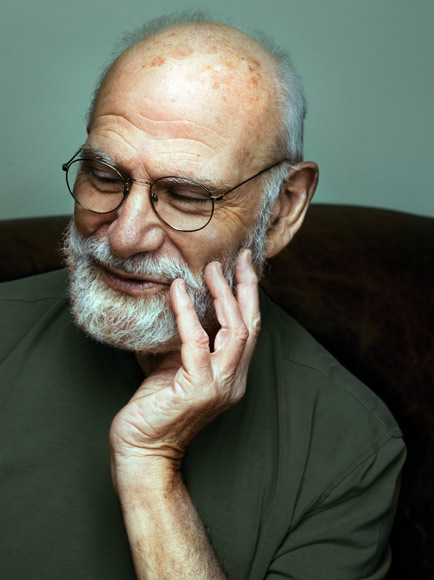
Oliver Sacks
Oliver Wolf Sacks CBE FRCP (9 July 1933 – 30 August 2015) was a British neurologist, naturalist, historian of science, and writer.[2] Born in London, Sacks received his medical degree in 1958 from The Queen's College, Oxford, before moving to the United States, where he spent most of his career. He interned at Mount Zion Hospital in San Francisco and completed his residency in neurology and neuropathology at the University of California, Los Angeles (UCLA).[2] Later, he served as neurologist at Beth Abraham Hospital's chronic-care facility in the Bronx, where he worked with a group of survivors of the 1920s sleeping sickness encephalitis lethargica, who had been unable to move on their own for decades. His treatment of those patients became the basis of his 1973 book Awakenings,[3] which was adapted into an Academy Award-nominated feature film in 1990, starring Robin Williams and Robert De Niro.
Oliver Sacks
30 August 2015 (aged 82)
Non-fiction books about his psychiatric and neurological patients
Physician, professor, author, neurologist
His numerous other best-selling books were mostly collections of case studies of people, including himself, with neurological disorders. He also published hundreds of articles (both peer-reviewed scientific articles and articles for a general audience), about neurological disorders, history of science, natural history, and nature. The New York Times called him a "poet laureate of contemporary medicine", and "one of the great clinical writers of the 20th century".[4] Some of his books were adapted for plays by major playwrights, feature films, animated short films, opera, dance, fine art, and musical works in the classical genre.[5] His book The Man Who Mistook His Wife for a Hat, which describes the case histories of some of his patients, became the basis of an opera of the same name.
Honours[edit]
In 1996, Sacks became a member of the American Academy of Arts and Letters (Literature).[73] He was named a Fellow of the New York Academy of Sciences in 1999.[74] Also in 1999, he became an Honorary Fellow at the Queen's College, Oxford.[75]
In 2000, Sacks received the Golden Plate Award of the American Academy of Achievement.[76] In 2002, he became Fellow of the American Academy of Arts and Sciences (Class IV—Humanities and Arts, Section 4—Literature)[77] and he was awarded the 2001 Lewis Thomas Prize by Rockefeller University.[78] Sacks was also a Fellow of the Royal College of Physicians (FRCP).[79]
Sacks was awarded honorary doctorates from Georgetown University (1990),[80] College of Staten Island (1991),[22] Tufts University (1991),[81] New York Medical College (1991),[22] Medical College of Pennsylvania (1992),[22] Bard College (1992),[82] Queen's University at Kingston (2001),[83] Gallaudet University (2005),[84] University of Oxford (2005),[85] Pontificia Universidad Católica del Perú (2006)[86] and Cold Spring Harbor Laboratory (2008).
Oxford University awarded him an honorary Doctor of Civil Law degree in June 2005.[87]
Sacks received the position "Columbia Artist" from Columbia University in 2007, a post that was created specifically for him and that gave him unconstrained access to the university, regardless of department or discipline.[88]
In 2008, Sacks was appointed Commander of the Order of the British Empire (CBE), for services to medicine, in the Queen's Birthday Honours.[89][90]
The minor planet 84928 Oliversacks, discovered in 2003, was named in his honour.[91]
In February 2010, Sacks was named as one of the Freedom From Religion Foundation's Honorary Board of distinguished achievers. He described himself as "an old Jewish atheist", a phrase borrowed from his friend Jonathan Miller.[92]
Death and legacy[edit]
Sacks died from cancer on 30 August 2015, at his home in Manhattan at the age of 82, surrounded by his closest friends.[2]
The 2019 documentary Oliver Sacks: His Own Life by Ric Burns was based on "the most famous neurologist" Sacks, which noted that during his lifetime it was popular for neurology resident applicants to state that they chose neurology after reading Sacks's work.[104]
In 2019, A. A. Knopf signed a contract with the historian and biographer Laura J. Snyder to author a biography of Sacks based on exclusive access to his archive.[105]